Crisis on South European Democracies 1st Edition Leonardo Morlino
Visit to download the full and correct content document: https://textbookfull.com/product/the-impact-of-the-economic-crisis-on-south-european -democracies-1st-edition-leonardo-morlino/
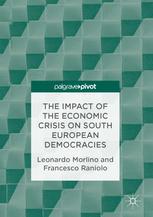
More products digital (pdf, epub, mobi) instant download maybe you interests ...
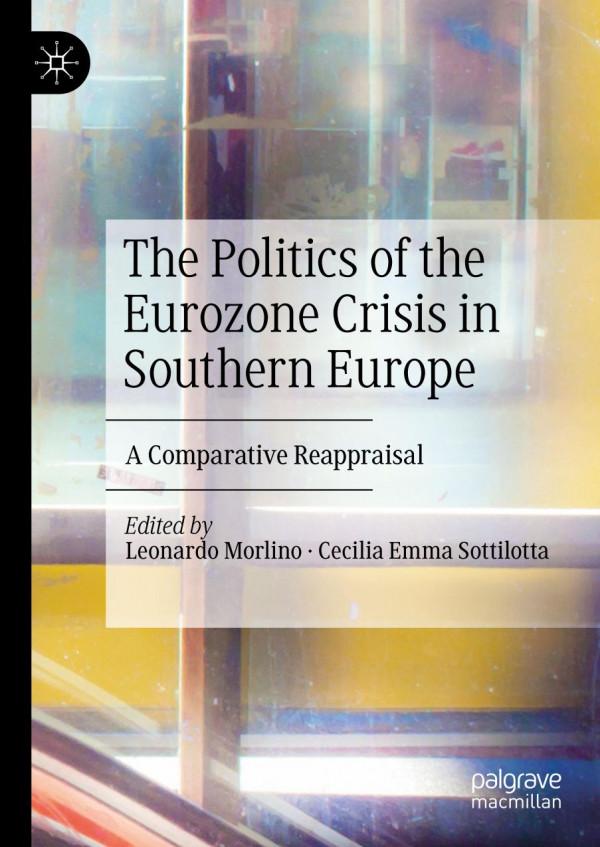
The Politics of the Eurozone Crisis in Southern Europe: A Comparative Reappraisal Leonardo Morlino
https://textbookfull.com/product/the-politics-of-the-eurozonecrisis-in-southern-europe-a-comparative-reappraisal-leonardomorlino/
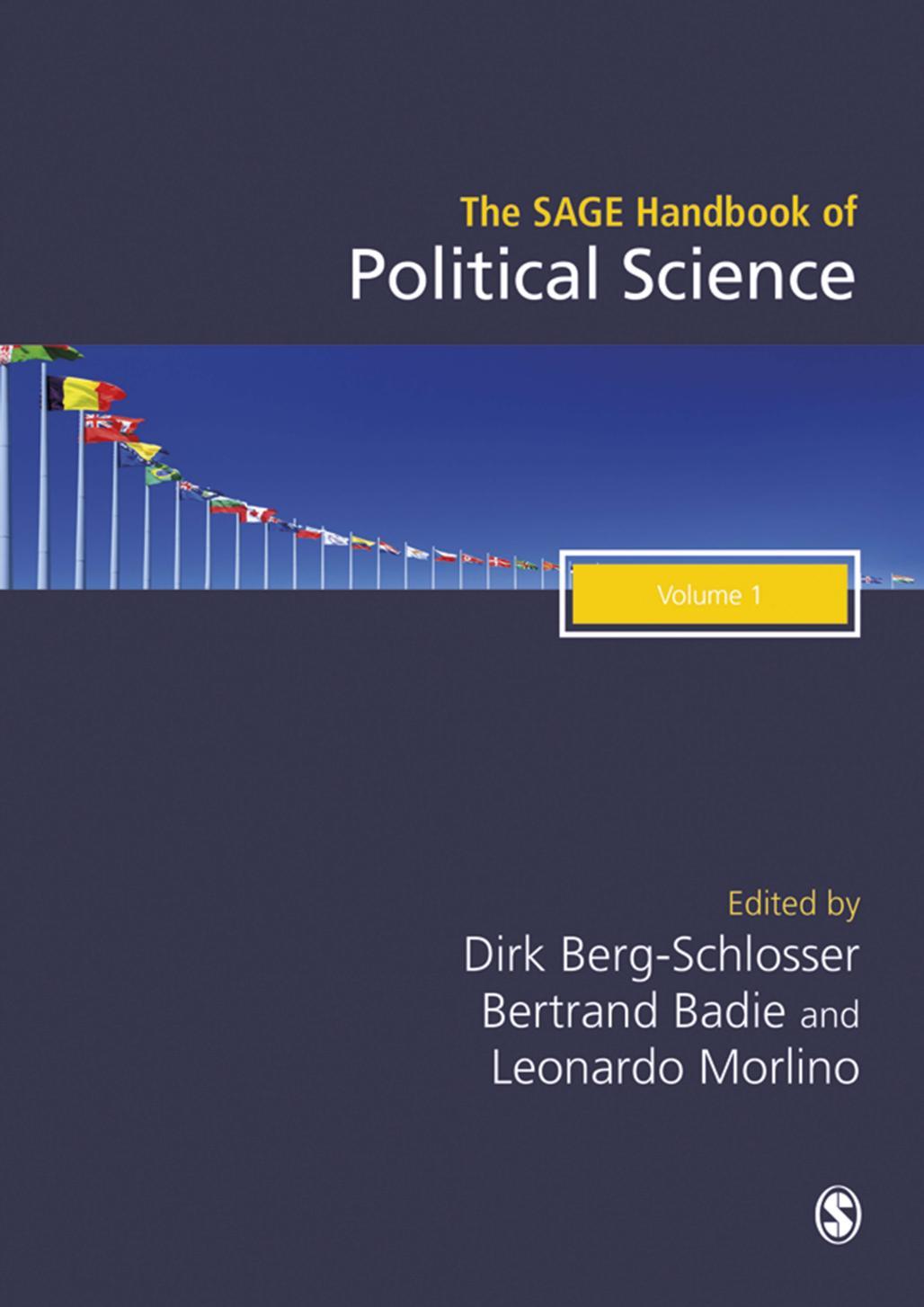
The SAGE Handbook of Political Science 1st Edition Dirk Berg Schlosser Bertrand Badie Leonardo Morlino
https://textbookfull.com/product/the-sage-handbook-of-politicalscience-1st-edition-dirk-berg-schlosser-bertrand-badie-leonardomorlino/
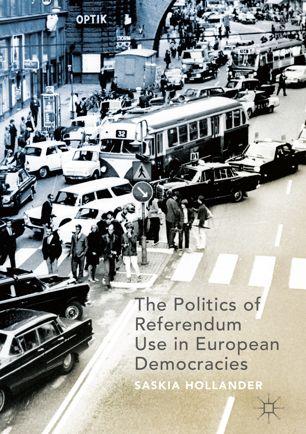
The Politics of Referendum Use in European Democracies Saskia Hollander
https://textbookfull.com/product/the-politics-of-referendum-usein-european-democracies-saskia-hollander/
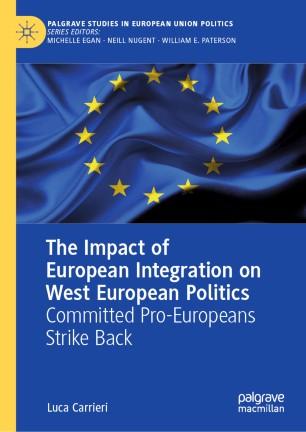
The Impact of European Integration on West European Politics: Committed Pro-Europeans Strike Back Luca Carrieri
https://textbookfull.com/product/the-impact-of-europeanintegration-on-west-european-politics-committed-pro-europeansstrike-back-luca-carrieri/
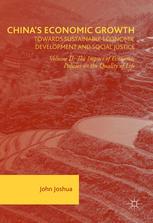
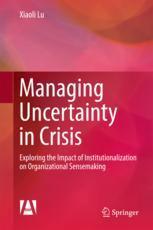
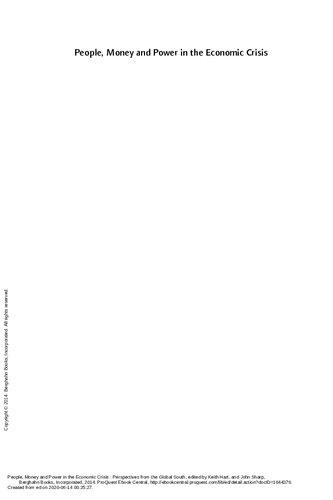
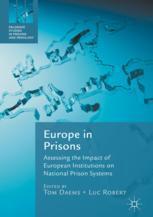
China's Economic Growth: Towards Sustainable Economic Development and Social Justice: Volume II: The Impact of Economic Policies on the Quality of Life 1st Edition
John Joshua (Auth.)
https://textbookfull.com/product/chinas-economic-growth-towardssustainable-economic-development-and-social-justice-volume-iithe-impact-of-economic-policies-on-the-quality-of-life-1stedition-john-joshua-auth/
Managing Uncertainty in Crisis Exploring the Impact of Institutionalization on Organizational Sensemaking 1st Edition Xiaoli Lu (Auth.)
https://textbookfull.com/product/managing-uncertainty-in-crisisexploring-the-impact-of-institutionalization-on-organizationalsensemaking-1st-edition-xiaoli-lu-auth/
People Money and Power in the Economic Crisis Perspectives from the Global South The Human Economy
Keith Hart (Editor)
https://textbookfull.com/product/people-money-and-power-in-theeconomic-crisis-perspectives-from-the-global-south-the-humaneconomy-keith-hart-editor/
Europe in Prisons: Assessing the Impact of European Institutions on National Prison Systems 1st Edition Tom Daems
https://textbookfull.com/product/europe-in-prisons-assessing-theimpact-of-european-institutions-on-national-prison-systems-1stedition-tom-daems/
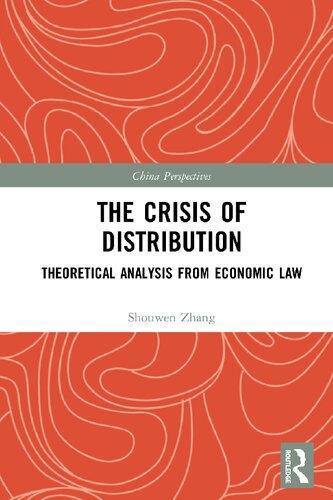
The Crisis of Distribution: Theoretical Analysis from Economic Law 1st Edition Shouwen Zhang
https://textbookfull.com/product/the-crisis-of-distributiontheoretical-analysis-from-economic-law-1st-edition-shouwen-zhang/
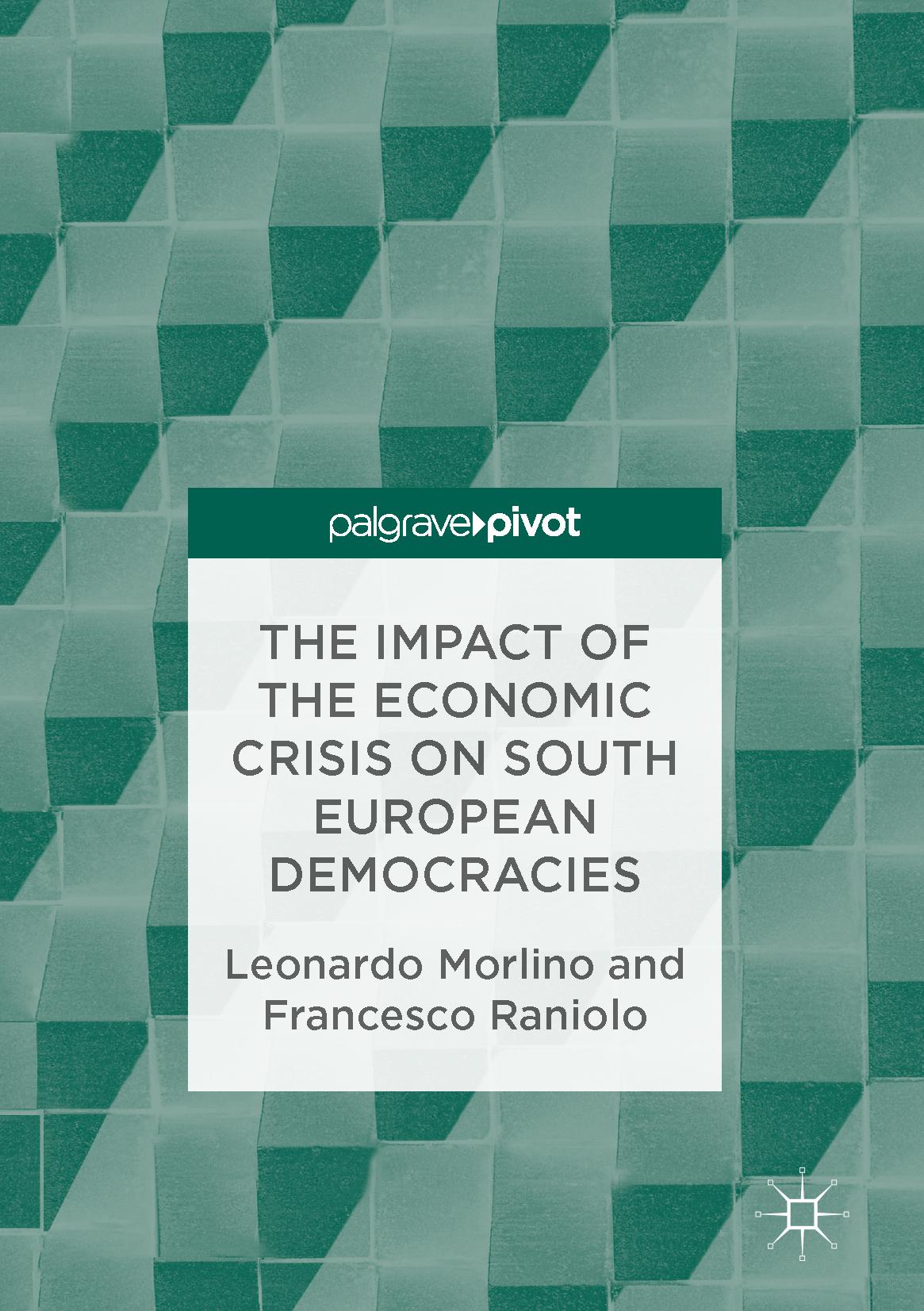
TheImpactoftheEconomicCrisis onSouthEuropeanDemocracies
LeonardoMorlino • FrancescoRaniolo
TheImpact oftheEconomic CrisisonSouth European Democracies

LeonardoMorlino ProfPoliticalScience,ViceRector LUISSGuidoCarli
Roma,Italy
FrancescoRaniolo ScienzePoliticheeSociali UniversitàdellaCalabria ArcavacatadiRende Cosenza,Italy
ISBN978-3-319-52370-5ISBN978-3-319-52371-2(eBook) DOI10.1007/978-3-319-52371-2
LibraryofCongressControlNumber:2017932553
©TheEditor(s)(ifapplicable)andTheAuthor(s)2017
Thisworkissubjecttocopyright.Allrightsaresolelyandexclusivelylicensedbythe Publisher,whetherthewholeorpartofthematerialisconcerned,specificallytherightsof translation,reprinting,reuseofillustrations,recitation,broadcasting,reproductionon microfilmsorinanyotherphysicalway,andtransmissionorinformationstorageand retrieval,electronicadaptation,computersoftware,orbysimilarordissimilarmethodology nowknownorhereafterdeveloped.
Theuseofgeneraldescriptivenames,registerednames,trademarks,servicemarks,etc.inthis publicationdoesnotimply,evenintheabsenceofaspecificstatement,thatsuchnamesare exemptfromtherelevantprotectivelawsandregulationsandthereforefreeforgeneraluse.
Thepublisher,theauthorsandtheeditorsaresafetoassumethattheadviceandinformation inthisbookarebelievedtobetrueandaccurateatthedateofpublication.Neitherthe publishernortheauthorsortheeditorsgiveawarranty,expressorimplied,withrespect tothematerialcontainedhereinorforanyerrorsoromissionsthatmayhavebeenmade. Thepublisherremainsneutralwithregardtojurisdictionalclaimsinpublishedmapsand institutionalaffiliations.
Coverillustration:AbstractBricksandShadows©StephenBonk/Fotolia.co.uk
Printedonacid-freepaper
ThisPalgraveMacmillanimprintispublishedbySpringerNature TheregisteredcompanyisSpringerInternationalPublishingAG Theregisteredcompanyaddressis:Gewerbestrasse11,6330Cham,Switzerland
ACKNOWLEDGEMENTS
Thisshortbookis, firstofall,theresultofaprotractedexchangeofideas betweenthetwoauthors.Whatwasatbeginningintendedtobeanarticle onEuropeanprotestpartiesbecamealargerreflectiononthecontemporarymodesofrepresentationespeciallyinsouthernEuropeancountries.
Ofcourse,ourdebatewasalsoinfluencedbyotherexchangeswith severalcolleaguesinanumberofoccasions(conferences,seminars,public discussions),bothformalandinformal.Inthisperspective,oneofthetwo authors,Morlino,wouldliketoacknowledgethehelptheresearchand bookreceivedduringhisstayatWissenschaftZentruminBerlin,better knownasWZB,andwarmlytothankWolfgangMerkelfortheinvitation andmakingthestaythereeffectiveandpleasant.
TheresearchthatisbehindthebookhadthevitalhelpofMarcoLisifor fieldresearchinPortugal,ValeriaTarditiforSpain,andDavideVittorifor GreeceandSpainaswell.Withoutthemespeciallythechaptersonnew protestpartieswouldhavebeenmuchlessinformedandempirically poorer.Wethankthemforthecrucialhelp,togetherwithMaurizio Cerruto,ChiaraFacelloeStefanoRombifortheirhelpincollecting otherempiricaldataweintegratedintotheanalysisandLuciaMontesanti forhelpinguswiththeindex.
Wealsodecidedtoaskafewcolleaguesandfriendstoreadandcriticize a firstdraftofthemanuscript.WegratefullythankDonatelladellaPorta, LorenzoDeSio,LiborioMattinaandAngeloPanebiancoforalltheir valuablesuggestionsthatcontributedtoimprovethework.Ifwithaso importanthelpthebookstillhaslimitsandmaybemistakestheresponsibilitycannotfallifnotonus.
Finally,itiswellknownhowlimitedaretheresearchfundsdevotedto socialsciences.Weweresoluckytoreceiveoneofthesefewgrantson ‘EconomiccrisisandthequalityofdemocracyinEurope’ fromtheministryofuniversityandscientificresearch.Thus,wewouldliketogratefully acknowledgethishelpthatwasnecessaryforthe fieldresearchinthefour southernEuropeancountries.
LISTOF FIGURES
Fig.2.1ThegrowthofpublicdebtinSouthEurope,as%ofGDP (1995–2015)9
Fig.2.2ChangesofGDPandunemploymentrateinSouthEurope (1995–2015)11
Fig.3.1Trendsinelectoralturnout:SouthernEuropeplusGermany andSweden(1993–2016)27
Fig.3.2Trendinpartymembership(SouthernEurope)29
Fig.3.3ConfidenceinParties:SouthernEuropeplusGermanyand Sweden(1997–2015)30
Fig.3.4Trendsinelectoralvolatility:SouthernEurope(1993–2016)31
Fig.3.5Thegrowingsalienceoftheleft/rightcleavagebeforeand duringthecrisis36
Fig.3.6Partyfragmentation:SouthernEuropeplusSwedenand Germany(1993–2016)38
Fig.3.7SatisfactionwithDemocracyinSouthernEuropeplus GermanyandSweden(1992–2015)40
Fig.3.8ConfidenceinGovernmentandParliament,SouthernEurope plusGermanyandSweden(1997–2015)41
Fig.4.1VotesforthemainincumbentandprotestpartiesinSouthern Europe:NationalandEuropeanelections51
Fig.4.2OpinionofGreekelectorsonnegotiationsbetween thegovernmentandEuropeanInstitutions(2015)65
Fig.5.1Efficiencyofpublicadministration:SouthernEurope90
Fig.5.2Controllingthecorruption:SouthernEurope90
Fig.5.3NonconventionalParticipationinSouthernEurope (1992–2014)100
LISTOF TABLES
Table3.1ElectoralradicalizationinSouthernEuropeplusGermany andSweden(1993–2016)33
Table3.2Frombipolarizationtotripolarization:Thevoteforthetwo largestparties(1993–2016)37
Table4.1Membershipofprotestparties(selectedyears)75
Table5.1Informaleconomy,productivityandcompetitivenessin SouthernEurope91
Table5.2Inclusionoftradeunionsinpolicy-makingandunionization inSouthernEurope95
Table5.3StrikesandlockoutsinSouthernEurope(1994–2015)97
Table6.1Thecatalysteffectofeconomiccrisis119
CHAPTER1 Introduction
Abstract Therearefewdoubtsthatademocraticregimecanbedeeply affectedbyeconomiccrisis.Thiswassowithreferencetothegreat economiccrisesofthetwentiethcentury,butitisalsofortherealestate and fiscalcrisesof2008.WhatarethepoliticalconsequencesofthisGreat Recession?Aretheylimitedorprofoundandserious?Andwhatarethe mechanismsatworkthathelptoexplainthoseconsequences?Theintroductionemphasizesthechannelsofexpression(election,protest,interests) thatareaffectedbythecrisisandempiricalscopeoftheresearch,thatis, thedemocraciesofSouthEurope(Greece,Italy,PortugalandSpain).In particular,specificattentionwillbegiventothebuildingofandthe electoralsuccessofnewprotestpartiesandtotherelationshipsamong thethreechannelsofexpression.Ultimately,themainquestionishowthe economiccrisiswillaffectthequalityofourfourdemocraciesintermsof participationandcompetition.
Keywords Economiccrisis Channelsofexpression SouthEurope
Howisitpossiblethataconjuncturephenomenon,aseconomiccrisisis usuallyconsidered,canbringaboutlastingpoliticalconsequences?Andif so,whatarethemainconsequencesthatneedtobeanalysedindepth? Whatisorwhatarethecoremechanism/satworktoexplainthem?We wouldliketoaddresstheserelatedquestionsbyfocusingontheeconomic
©TheAuthor(s)2017
L.Morlino,F.Raniolo, TheImpactoftheEconomicCrisisonSouth EuropeanDemocracies,DOI10.1007/978-3-319-52371-2_1
crisis,whichstartedin2007mainlyintheUSAandwentonin2008still intheUSAandinEuropeandwhichonthewholehaslastedatleastuntil 2014/2015insomecountries.Withinthisspanoftimewelookathow thatcrisisaffectedallthemainchannelsofpoliticalexpressionthatare availableinademocracy.Butthe first,obvious,questioniswhatarethe mainresultsofresearchdoneonthistopic?
Wecanstartfromthewidelyacceptedwisdomthatademocraticregime canbedeeplyaffectedbyeconomiccrisis.Inthepast,thissometimes happenedinthemostdramaticway,withthebreakdownofademocratic orquasi-democraticregimeandtheinstallationofanauthoritarianoreven ofatotalitarianregime,asinthecaseofGermany.Duringthelastcentury, economiccrisesalsobroughtaboutradical,fundamentalchangesaswell asrelativelymoderate,partialtransformationswithindemocracies.For example,wemayrecallthesocalledNewDeal-policyintheUSAand thedemocraticintegrationofNorthernEuropeanSocialistpartiesas politicalconsequencesofthecrisisintheearly1930s;thepartialcreation andspreadofthewelfarestateinmostoftheEuropeandemocraciesasa resultofthecrisisstemmingfromthedestructionwroughtbyWorldWar II;thedevelopmentofneo-corporatistarrangements,complementedby policiesofprivatizationandderegulationattheendof1970s,asawayto respondtothecrisisinthoseyearsandtopavethewayforovercomingit. However,thewaytoanalysethisissueisgoingtochangewhenwecan takeforgrantedthatthereisaverybroad,largelegitimationofdemocracy asthedominanttypeofregimeintheworld,andthisisso,especiallyafter theestablishmentofdemocraciesinSouthernEuropeandLatinAmerica, andlaterinEasternEuropeattheendof1980swiththefalloftheBerlin wall,inadditiontootherspecificcasesinotherkeyareasoftheworld,such asSouthAfricaandSouthKoreaorTaiwan.Thus,theeconomiccrisis startingin2008inEuropetakesplaceinanewdifferentpoliticalcontext, wheretherewasnolongerariskofdemocraticbreakdowninthatpartof theworld.Consequently,thequestiontoaddressis:howtoanalysethe impactofthenew2008economiccrisiswithinanewpoliticalcultural context?
Here,fromourperspective,inadditiontoanumberofarticlesand booksbyeconomistsonthecrisis(see,e.g.,Lane 2012),itismore importanttotakeintoconsiderationthepoliticalimpactoftheeconomic crisis, firstofallonelectionswithregardto:howeconomicissuesbecome dominantforvotersundereconomicrecession(cf.Singer 2011);how incumbentpartieswerepunishedwhentherewasaneconomiccrisis
(cf.Kriesi 2014);themoregeneraleffectsoftheeconomiccrisisonvoting (seeespeciallyHernandezandKriesi 2016;orLindvall 2014);theimpact oftheeconomiccrisisonparties(seeBoscoandVerney 2012);andhow thecrisisdeeplyaffectedthewelfarestateinaspecificgroupofcountries, suchasSouthEurope(seePetmesidouandGuillén 2014).However,all inall,themostrecurrentpositiononthe ‘GreatRecession ’ isexpressed byBermeoandBartels(see 2014,3)whentheyrecognizethechangein votingandthepunishmentofincumbentleadersandparties,butatthe sametimestressthatthereactionsandconsequentlytheimpactwere verylimited.Thatis,almosteverythingseemstobeconfinedtoatemporarychangeinvotingbehaviourandsomelimitedprotest.Within thisperspectiveasocio-economicanalysisofthephenomenon,suchas thatcarriedoutbyKahlerandLake(2013),isevenmoreradical.Infact, ontheonehand,theystartbyaffirming ‘theGreatRecession ... isthe worsteconomiccrisistobesettheworldeconomysincetheGreat Depressionofthe1930s’ (p.1),butthencontinuebystressinghow, ‘Despiteitsnegativeeffectsonincumbentgovernments,theeconomic crisishasprovidedfewsignsoffundamentalpoliticalrealignment,policy experimentation ... ormobilizationbynewpoliticalactors. ... rampant economicnationalismorseriouserosionofinternationalcollaboration hasnotemerged’ (p.2).
Thus,ontheonehand,thehistoricalanalysessuggestthatinthepast criseswereopportunitiesforchangesandevenforareinventionofdemocracywiththeadditionofwelfareinstitutionsandpoliciesreshapingthe representativechannelsofdemocracy.Ontheotherhand,thepresent empiricalresearchstresseshowlimitedandpartialtheimpactis,basically –wecouldadd – becauseofthefulllegitimationofthedemocraticregime, whichatleastinanumberofareasoftheworlddoesnothaveanyviable alternative.Tosolvethispuzzle,thatis,tobetterunderstandifthe politicalconsequencesoftheGreatRecessionareactuallylimited,oron thecontrary,areseriousandprofound,andalsotobemorepreciseabout theempiricalmeasuresofthecrisisanditsbeginning(see Chapter3), weneedtosuggestanalternativetheoreticalperspectivefromwhichto analyseitsimpact,aswedointhisbook.
Thus, first,weaimtoexplorewhathappenedwithinthosechannelsof expression,thatis,inside:
1.theinstitutionalizedparticipationandcompetition,thatis,onthe occasionofelectionsandatthepartiesandpartysystemlevel;
2.thenon-institutionalizedparticipationconcerningsocialmovements andotherexpressionsofprotest;and
3.theinterestgroupsassociations,especiallytradeunionsand entrepreneurs’ associations,andtheirrelationshipsincludingthe advocacyoftheirinterestsduringtheeconomiccrisis.
TheempiricalanalysiswillfocusonthefourSouthEuropeancountries (Portugal,Spain,Italy,andGreece)duringthe2008–2015years,butit willalsobenecessarytolookatwhatwashappeningearlierontosingle outthechangesduringtheyearswefocuson.Inthesecondchapter,we provideadefinitionofourindependentvariable,nowknownastheGreat Recession(see Chapter2),byfocusingalsoontherelatedproblemswhen consideringthepoliticalconsequences.
ThequestioniswhetherevenincomparisonwiththeGreatCrisisof 1929andlater,andalsooftheothersubsequentcrisesintheearly1970s andthe1980s,the2008–2014GreatRecessioncaneffectivelybeconsideredacaseof ‘criticaljuncture’1 foritsimpactonourdemocracies, despitealargeliteraturethatunderestimatethepoliticalconsequencesof thecrisis(seeabove).Wewillanswerthisquestionintheconclusionsafter havinganalysednotsomuchthefactthatinternationaleconomiccrisesare majorbreakdownsandreorganizationsofglobalsystemsofproduction andofmarkets,butaboveallthewindowsofopportunitythatwereopen topoliticalandinstitutionalchanges,thestrategiesofpoliticalleaders, thechoicesmadebycitizens,and finallythepermanentconsequences,if theyexist.
Turningtoourdependentvariables, first,atatheoreticallevelandon thebasisoftheempiricalknowledgewehaveatthemomentwewillask whattheimpactofthecrisiswasoncontemporarydemocracy.Wewilldo thisbyemphasizingtheimpactonthequalityofdemocracy.Whydowe takethispointofview?Inthenewglobalcontextoftheearlytwenty-first century,characterizedbythelessonslearntfromWorldWarII,byother economiccrises,especiallyinthe1970sand1990s,bythefallofthe BerlinWallandawidespreadlegitimizationofdemocracy,wecannot assumethataneconomiccrisisasdeepasitcanbewouldbringabout thebreakdownofademocracyinEurope.Thishappenedinthepast – for example,inGermanyintheearly1930s – withdramaticcontributionsof otherfactors(see,e.g.,Bracher 1955).Today,therelevantquestionhasto bereconsideredandinsteadapossibleworseningofademocracyshould beanalysed.Thus,wetakeintoconsiderationthequalitydimensionsofa
democracythatcanbeendangeredandworsenedbytherecentcrisis.Of course,thisimpliesadiscussionofthenotionofthequalityofdemocracy andofafewprecisesub-dimensions.Wewilldothisinthe Chapter2 and willjustifyafocusontheabovethreemainchannelsofexpressionin connectionwiththetwokeyqualities,namelyparticipationandcompetition.Wewillalsodiscussthepossiblecoremechanismofimpact,the ‘catalysingeffect.’
Inthethirdandfourthchapters,withintheframeworkofthekey dimensionsofparticipationandcompetition,the firstchannelofexpressionrelatedtopartiesandpartysystemsandrelatedchangesandinnovationsduringtheseyearswillbeanalysed.Ofcourse,specificattentionwill begiventothebuildingofandtheelectoralsuccessofnewprotestparties, suchas Syriza (Greece), Podemos (Spain),the FiveStarMovement (Italy) andalsothepartialfailureof EarthParty (Portugal),tomentionthemost successfuloftheminthefourcountries.Reshapingorcontinuity ofpartisancleavages,andthevotesobtainedbythesepartiesandtheir electoralbases,organization,institutionalpresence,andtheprogrammes andpoliciestheysupportwillbeanalysedtogetherwiththeconsequences forpartysystems.Ofcourse,akeyaspectofthechapterwillbeexplanationsofthesuccessofsomeprotestparties,thepartialsuccessofothers, andthebasicfailureofstillothers.Thechapterwillendbyassessing changes,adaptations,orpersistenceofthebasicpreviouspatternsandby discussingtheirconsistencyorinconsistencywithexpectations.
Theproblemofparticipationrelatedtosocialmovementsandthe aspectsofparticipationandcompetitioncharacterizinginterestgroups willbetheobjectofthe fifthchapter.Thesetwoadditionalchannelsof expressionareoftenoverlookedinthiskindofanalysis,partlybecause ofdifficultiesinempiricalresearch.Onceagain,changes,adaptations,or persistenceofpreviouscharacterizingpatternswillbeassessedandtheir consistencyorinconsistencywithexpectationswillbediscussed.
Intheconclusions,wewilladdressafewquestionsthatweconsider especiallyrelevanttounderstandingwhathappenedasaresultofthecrisis, notonlyinthispartofEuropebutalsoinanumberofothercountries inthesamearea.First,therewillbeanappraisalandassessmentofthe re-equilibrationorstabilityoftheinter-channellingofthemeansofpoliticalexpression.Moreprecisely,ifduringthetimespanweareconsidering therewasachangeoradaptationorpersistenceofthecharacterizing patternsinsidepartiesandpartysystems,socialmovementsandinterest groups,whathappenedtotheconnectionsamongthesechannels?Was
thereatransferofactivismfromsocialmovementstopartieswithinan institutionalizingprocess,asa first-glanceanalysisof Syriza and Podemos mightsuggest?Orwastheresomethingelsebehindthefaçadeofthese channels?Andwhathappenedtointerestgroups,whichwereconsidered theinstitutionalsolutiontotheeconomiccrisisofthe1970s(seeespecially Gourevitch 1986)?
Arelevantandcloselyconnectedquestiontobeaddressedinthe conclusionswilltakeintoaccountsomecharacteristicsofthechannellings relatedtopartiesandpartysystems,complementedbytheroleofsocial movementsandinterestgroups.Werefertotheneo-populistphenomenonthatwasrevivedintheyearsofdiscontentbroughtaboutbythe economiccrisisandthatmaycharacterizethepost-crisisdemocracieswith aresoundingsuccessoftheextremerightorleft.
A final,obvious,questiontobeaddressediswhetherandhowthese changescontributedtoworseningorironicallydeepeningandimproving southernEuropeandemocraciesfromtheperspectiveofparticipationand competition.Wehopethatthepoliticaldebateinthesecountrieswillgain fromtheempiricalanalysisandtherelatedassessmentswedevelopinthis research.
NOTE
1.ThisisclassicnotionthatincomparativepoliticsgoesbacktoLipsetand Rokkan(1967), firstofall.CapocciaandKelemen(2007,348)define criticaljunctures ‘as relatively shortperiodsoftimeduringwhichthereisa substantially heightenedprobabilitythatagents’ choiceswillaffecttheoutcomeofinterest’.SeealsoMahoneyandThelen(2009)andDobry(2000).
CHAPTER2
HowtoAnalysetheImpact oftheEconomicCrisisonDemocracies
Abstract Howtoanalysetheimpactofeconomiccrisesondemocracies intheSouthEurope?Thetheoreticalframeworkofthiskeyquestionis, fi rstofall,setupbyaddressingtheproblemofhowtode fi ne,specifyand measuretheimpactoftheindependentvariable:theeconomiccrisis.In doingsothespeci fi citiesoftheGreatRecess ionstartinginabout2008 areemphasizedalsovis-à-visthem anagementofprevioustwentiethcenturyeconomiccrises.Afterashortoverviewofthemostrecent literature,thefocusgoesontothede fi nitionofthedependentvariables, thatis,ofthedimensionsorspeci fi cqualitiescontemporarydemocracies canvary.Inparticular,thechapteremphasizestheroleofthetwocritical classicqualities,parti cipationandcompetitionwithitssub-dimensions. Thecentralexplanatoryhypothesissuggeststhattheactualimpact dependsontheeffectiveexistenceofbackgroundconditionsforchange, andaccordingly,theeconomiccrisishasacatalysingeffectonthose conditions.
Keywords Qualityofdemocracy Participation Competition Catalysing effect
©TheAuthor(s)2017
L.Morlino,F.Raniolo, TheImpactoftheEconomicCrisisonSouth EuropeanDemocracies,DOI10.1007/978-3-319-52371-2_2
2.1WHAT ISTHE ‘GREAT RECESSION’?
Thischapterwillstartbydiscussingourindependentvariablewithits subsequentintricaciesandwillgoonbysinglingoutthedimensionsof democracytoexploreinananalysisofthequalityofdemocracy,thatis, howtoassessademocraticregime.
Regardingmeasuresofthecrisisstartingespeciallyin2008afterthe bankruptcyofLehmanBrothers,wecanlookatdataonGDPgrowth, wherewealreadyseestagnationorevenrecessioninthatyear.The possibleendofthecrisisis2014whentherewasanevidentinversion inthedata(seetheof fi cialEurostat,OECDorWorldBankstatistics).Of course,thesedatacanbecomplementedbysimilardataonunemploymentandde fi cit – withallthenecessarycaveatsregardingdifferences amongcountriesevenwhenusingthesameindicators.Moreover,lookingatthesedata,wecanseestrongevidencethattheeconomiccrisis affecteddifferentcountriesinadee perorrelativelymorelimitedway. Forexample,notonlycountriessuchasGreecebutalsoalltheother southernEuropeanonesweremoredeeplyaffected,whileeastern Europeancountries,e.g.PolandandtheCzechRepublic,weremuch lessaffected.
Havingsaidthis,anempiricaldefinitionofourindependentvariable, theeconomicand financialcrisis,pointsto:
1.instabilityof financial,monetaryandothermarkets;
2.adeclineingrossdomesticproduct(GDP),despiteallthelimitsthis indicatorhas1;
3.growingunemploymentcomplementedbyfallsininvestmentand tradeexchanges;
4.aprotractedeconomicsituationwhichischaracterizedbyverylow growthorstagnationforafewyears(seealsoKindleberger 1987; Moren 1968;Almondetal. 1973).
Whilemarketinstabilityrecallsageneraldisequilibriumandabreakinthe effectiveworkingofthemarket, financialaspectsincluded,thedeclinein GDPandotherrelatedaspectssingleoutabreakinthesystemofproduction,andinthisvein,theeconomiccrisiscanbeseeninanarrowerperspective.Unlikewhatusuallytakesplace – economiccrisesthatarecharacterized by financialandindustrialfeatures(Ciocca 1996,613) – thecrisisweare analysingstartedin2007asaUS financialcrisis(DeCecco 2013,XI) – with
itsrootsinspeculationinthehousingmarket – andeventuallyaffectedthe realeconomy.
WhenonlytakingintoconsiderationthedeclineinGDPandthe growthinunemployment,wesingleoutthetwomainclassiceconomic indicatorsofaneconomiccrisiswithanarrowmeaning.Withthisinmind, weshouldreflectonthepeculiaritiesofthe2008–2014crisis,which startedwithacrisisinhousingand financialmarketsfollowingaprotracted phaseofpositivetrendsintheeconomicmarkets – asortofgoldenperiod ofcapitalism,asSpaventa(2009)suggests.Thiscaneasilybeseennotonly whenlookingatGDPandunemploymenttrends,butalsoatprivateand publicinvestment,familyconsumption,inflationandpublicdebtuntil 2007(Fig.2.1).Onthewhole,atthispoint,itcanbestatedthat ‘by 2016,9yearsaftertheoutbreakoftheglobal financialcrisisin2007, economicactivityintheEUandtheEurozonewasstillbelowitspre-crisis level. thejointeffectsoftheglobal financialcrisisandtheEurocrisis havecausedmorelastingeconomicdamageinEuropethantheGreat Depressionofthe1930s’ (Copelovitchetal. 2016,811–2).Thus,no wonderthatnowtherecurrentwayoflabellingthe2008–2014crisisis the ‘GreatRecession’ .
Fig.2.1 ThegrowthofpublicdebtinSouthEurope,as%ofGDP (1995 –2015)
Source:InternationalMonetaryFund,WorldEconomicOutlookDatabase(April2016)
Figure2.2 showsthechangesinGDPandtheunemploymentratesince 1995tostressthedifferencebetweenwhenthecrisistookplaceand earlier.Fromthis figure,wemayalsoimmediatelygraspthedifferences amongthefourcountries.Forexample,onlyconsideringGDP,wecansee thatintheperiodhereconsidered(2008–2015),Greecesufferedadecline forsixconsecutiveyears,Italyfortwoyears(2012–2013),Spainforfour yearswithayearofstagnationinthemiddle(2011)andPortugalfor five yearswithareversalonlyin2010.Consequently,wecanseethatGreece wasmoreheavilyaffectedthanthethreeothercountries;thatGreece andSpainsufferedmostintermsofunemploymentandrelatedsocial costs;thatSpainwasabletorecoverbetter,atleastintermsofGDP; and,however,signsofrecoveryhavebeenevidentsince2013.Thus,we mightalsoexpectadifferentimpact,thatoncetheeconomiccrisistriggeredasocialreaction,thentheemergingnewinstitutions,suchasprotest partiesandothers,shouldstarttohaveanewautonomousexistencewith emergingvestedinterestsofthenewpoliticalelite.Whetherthisisactually sowillbeseeninthesubsequentchapters.
Moreover,itisimportanttostressthat,asBermeoandBartels(2014,4) state,theeffectiveimpactofthecrisisbecameevidentwheninorderto autonomously fighttheeconomiccrisisandlaterunderexternalpressures, governmentsmadedecisionssuchastocutbudgets,withalltherelated consequencesfortheworkingofinstitutionsaswellasforpeople,above allduring2010–2012(see,e.g.,Lane 2012;Picard 2015;alsoWhitehead 2010).Infact,withintheentireeuroareatherewasaseriousdeepeuro crisis,wherecon flicts,stalemateandlatedecisionstookplacearounda decisionalstrategyofdomesticdevaluationimposedonthesouthern EuropeancountriesandIreland – thePIIGS,whichinthemorerecent literaturehasbecometheGIIPS(seeespeciallythespecialissueof ComparativePoliticalStudies 49(7),2016).Asanexternaldevaluation wasnotpossible,thetwoEuropeanUnionauthorities(theCommission andtheEuropeanCentralBank)andtheInternationalMonetaryFund, knownunderthederogatoryterm troika,imposedcutsinwages,in publicsectoremploymentandinpublicexpendituretomakeupforlost competitiveness,inadditiontootherreformssuchasthoseofindustrial relationssystemsandofpensions(ArmingeonandBaccaro 2012).As isalsowellknown,theseausteritymeasureshadanegativeimpacton domesticeconomiesinadditiontotriggeringmuchdiscussionamongthe EuropeanUniongovernments,withnewproblemsandcon flicts.
Fig.2.2 ChangesofGDPandunemploymentrateinSouthEurope(1995–2015)
Source:InternationalMonetaryFund,WorldEconomicOutlookDatabase(April2016)
Thus,weshouldacknowledgethattheEuropeanUnionplayeda distinctiveandespeciallyrelevanteconomicandpoliticalroleinthemanagementofthecrisis.Therefore,whiletheindependentvariableisthe economiccrisis,theEuropeanUnion’svariousinstitutionsbecameakey interveningvariablethatalsoaffectedsomeofthedimensionsandsubdimensionssingledoutabove.However,thekeyimportantaspecttobe understoodhereisthatacountry-baseddemocracycanassumeapolitical responsibilitythatisbeyonditselectorateandrefertoanotheragentor agents,inthiscase,theEU,andsuchresponsibilityleadstodecisionsthat deeplyaffectthelivesofitsowncitizens.Mair(2009)actuallymentions thiswhenreferringto ‘responsiblegovernment’ andtherelateddifficulties ademocraticgovernmentfacesinbeingresponsible;thatis,inresponding toobligationslaiddownbyagentswhoarenotthecountry’selectors. Althoughsucharesponsibilitymayprovetoberightandsuccessfulinthe mediumorlong-term,intheshort-termtherelateddecisionshitthe country’scitizensnegatively,asausteritymeasuresdo.Infact,thepolicies implementedbytheincumbentleaderseventuallycontributedtoashrinkingofresources(seeabove)andtoadditionalcitizendissatisfaction,by consequentlymagnifyingtheimpactofthecrisisitselfoverseveralyears. Thekeypointisthatwhenademocracybecomespartofalargercommunity,ontheonehand,itshiftssignificantaspectsofitssovereigntytothat communityand,ontheother,commitsitselftoobligationsorresponsibilitiesthatdonotalways – certainlynotintheshort-term – contributeto thebestinterestsofthecitizensofthatdemocracy.
Tosumupthethreadoftheanalysissofar,wehavea financialcrisisthat alsobecomesaneconomiccrisiswhichismostlyofaninternationalorigin (independentvariable);lateron,underthepressuresofthesovereigndebt crisis,thesouthernEuropeangovernmentstakeafewautonomousinitiatives; finally,followingrequestsforhelp(bailouts)fromGreece,Portugal, SpainandIreland,butnotfromItaly,the troika imposeanadditional packageofausteritymeasures.Onthewhole,lookingattheunfolding ofthisprocessofeconomiccrisisandresponsestoitbetween2008and 2012,werealizethattherewasanobjectivereductioninstatecapacityto providecollectivegoodsbecauseofexpenditurecuts,asStreeckandMertens (2013)show,compoundedbytheeffectsofthecrisisonprivateindividuals.
Itisalsowellknownthattherewerestructuralfactorsinthebackgroundofthiscrisis,suchas globalization,whichischaracterizedby differentdimensions(technological,economic,sociocultural),byagrowinginterdependenceofmarkets,byatransformationofcapitalisminto
‘finance-capitalism’ (Gallino 2011),byachangeintheworldorderwith thegrowthofinternationalanarchism,andtheneweconomicrolesof otherlargeeconomiessuchasChinaandIndia.Butthisisnotwhat primarilyinterestsus.Fromourperspective,itismorerelevanttoavoid glossingoverseveralotherorganizationalandinstitutionalbackground factorsthatliebetweencontextualmacro-variablesandthemicro-choices ofpoliticalactors,thatis,partiesandpartysystems.
Duringthetwentiethcentury,variouseconomiccrisestookplacein democraciesthatwerecharacterizedbypartiesbelongingtodifferentparty familiesanddifferentpartysystems,withobviousconsequencesforthe waythecrisiswaspoliticallymanaged.Thus,thereweremasspartiesor socialintegrationpartiesofbothdemocraticandauthoritariankinds(see Neumann 1956)duringthe firstdecadesofthecenturyandlaterafter WorldWarTwo,catch-allpartiesduringthe1960sand1970s,and professionalelectoralorpersonalpartiesinthe1990s.Attheendofthe centuryandinthe firstdecadesofthetwenty-first,organizationalpartisan weaknessesandrelatedfunctionaltransformations(seeMair 2013b and thenextchapter)affectedthecapacitytoachieveeffectivecoordination betweencitizen-electorsandpoliticalinstitutions,andalsowithinthese institutions.Oneoftheendresultswasanadditionalgrowthinpolitical uncertainty.Moreover,duringtheseyearseffectivecrisismanagementwas mademoredifficultbyanunderminingoftheKeynesianpoliciesatthe coreofthe ‘social-democraticcompromise’ (the ‘thirtygloriousyears’) andthesubsequent ‘neo-liberalthirtyyears’ startingin1979–1980with ReaganintheUSAandThatcherintheUKasrespectivelypresidentand primeminister(seeRaniolo 2000).Inanutshell,theinstitutionalweakeningofintermediaryinstitutions,likeparties,andarethinkingand recalibrationofwelfarestatepoliciesincreasedpoliticalandsocialvulnerabilityincopingwiththecrisis.Wewillcomebacktothebackground conditionsfromamorespeci fi cperspectivein Section2.3 .Now,toputit inasimplerway,wemustfocusonourdependentvariables.
2.2WHICH DEMOCRATIC DIMENSIONS TO LOOK ATAND WHY
Withthisinmind,forabetterunderstandingoftheimpact,weshould lookforanalternativetheoreticalframeworkthatisnotonlyfocused onvotingandelections,butonthepoliticalconsequencesforcitizens.
Focusingspecifi callyonGreeceandPortugalagroupofscholars focusesonideologicalandissuerepresentationandtheresponsiveness ofpartyelitesinPortugalandGreece.Theirmain fi ndingsindicate that ‘ thecrisishasreducedpolicycongruenceandspeci fi cregime supportinbothcountries.Inparticular,theexternalinterventionhas increasedthedistancebetweenvotersandtheirelectedrepresentatives, particularlywithrespecttoEuropeanintegrationandausteritypolicies. Yetthisgrowinglackofcongruencehasnotledtoadaptationor changeintermsofthestructureofcompetitionorpartystrategies’ (seeFreireetal. 2014 ,413).
Hereweadoptadifferentapproachthroughasystematicassessmentof thequalityofademocracyanditspossiblechanges.Fromourperspective, themoresomeofthekeydimensionsofademocracyareaffectedthe moreitisrelevantforouranalysis.Itis,therefore,usefultorecallwhat qualityofdemocracyis,whatitssalientdimensionsare,andwhichones canbemosttouchedbyaneconomiccrisis.
Brie fl yrecallingwhatwehavealreadydiscussedinotherworks(see especiallyMorlino 2011 ,chapter7),analysisofthequalityofademocracyhastostartfromanexplicitde fi nitionofquality.Whenweconsider thisaspectfurther,wecanseethreemeaningsofquality:(1).qualityis defi nedbytheestablishedproceduralaspectsassociatedwithaproduct; a ‘ quality ’ productistheresultofanexactlycontrolledprocesscarried outaccordingtopreciserecurringmethodsandtiming – herethe emphasisisonthe procedure ;(2).qualityconsistsinthestructural characteristicsofaproduct,beitthe design,materials,orfunctioning ofthegood,orotherdetailsthatitfeatures – here,theemphasisison the content ;(3).thequalityofaproductorserviceisindirectlyderived fromthesatisfactionexpressedby thecustomers,bytheirrepeated requestsforthesameproductorservice,regardlessofeitherhowitis producedorwhattheactualcontentsare,orhowtheconsumergoes aboutacquiringtheproductorservice – accordingtothismeaning,the qualityissimplybasedon result .(Morlino 2011 ,194).Moreover,ifa qualitydemocracyis ‘astableinstitutionalst ructurethatrealizesthe libertyandequalityofcitizensthroughthelegitimateandcorrectfunctioningofitsinstitutionsandmechanisms’ itisalsoabroadlylegitimatedregimethatsatis fi escitizens(qualityasresult );oneinwhichthe citizens,associationsandcommunitiesofwhichitiscomposedenjoy libertyandequality(qualityascontent);andoneinwhichthe citizensthemselveshavethepower tocheckandevaluatewhetherthe
governmentpursuestheobjectivesoflibertyandequalityaccordingto theruleoflaw( qualityasprocedure).
Withthesebasicde fi nitions,wecanspellouteightpossible dimensions orspecifi cqualities intermsofwhichdemocraciesmightvary,andwhich shouldbetakenintoconsideration.The fi rst fi veareproceduraldimensions.Althoughtheyarealsorelevanttothecontent,thesedimensions mainlyconcernrules.The fi rstproceduralqualityisthe ruleoflaw .The secondandthirdproceduralqualitiesregardthetwoformsof accountability(electoralandinter-institutional) .Thefourthand fi ftharethe classic participation and competition,which,however,haveaspecial theoreticalstatus(seebelow).Thesixthandseventharesubstantivein nature:fullrespectforrights,whichareexpandedthroughtheachievementofarangeof freedoms; andtheprogressiveimplementationof greatersocialandeconomic equality .The fi naleighthdimensionconcernsthe responsiveness orcorrespondenceofthesystemtotheneedsof citizens,andcivilsocietyingeneral.Here,wearenotgoingtoanalyse thedifferentdimensionsregardingthequalityofdemocracy(see Morlino 2011 ,chapters7and8).Weratherfocusonthetwoprocedural dimensionsthatareveryrelevantforeverydemocracy,thatis,participationandcompetition.Theotherdimensionswillremaininthebackgroundandwerefertothemonlywhenstrictlynecessary.
Participation and competition arequalitiesthatcanaffectalltheother dimensions.Participationcanbedefinedastheentiresetofbehaviours, betheyconventionalorunconventional,orlegalorborderline vis-à-vis legality,thatallowwomenandmen,asindividualsorasagroup,tocreate, revive,orstrengthengroupidentificationortotrytoinfluencetherecruitmentof,anddecisionsby,(representativeand/orgovernmental)political authoritiesinordertomaintainorchangetheallocationofexisting values.Thetwobasicgoalsofparticipationaretoestablishorstrengthen anidentityortosatisfyaspecificinterest;thatis,participationmeansbeing a ‘part’,revivingorrestatingasenseofbelongingoridentificationwith agroupofadifferentsort(identityparticipation)andtryingtoachieve somegoal(instrumentalparticipation).Athirdaspectofparticipationalso hastobetakenintoaccount:thesimpleactofparticipatingtransforms citizensintomoreinformedandinvolvedpeoplebydevelopingtheircivic attitudes,andbymakingcommunicationandsocialrelationshipseasier. Citizensbecomemoreawareoftheirrightsanddutiesanddevelopmore structuredconsciouspoliticalopinions.Inotherwords,participationis self-strengthening. 2HOWTOANALYSETHEIMPACTOFTHEECONOMICCRISISONDEMOCRACIES
Fromanempiricalperspective,ther earevariousformsofconventional participation,including,forexample,involvementinelectioncampaigns, involvementinpartisanandotherassociationalactivities,personalcontactwithpoliticians,andcollectiveformsofaction.Therearealsoseveral formsofnon-conventionalparticipation,suchasstrikes,demonstrations, riotsandothers,someofwhichinvolveviolence.Inthisoverallpicture, politicalparties,interestgroupsandmovementsareatthecoreofdemocraticactioninmanycountries,witharangeofconsequencesthatcannot beanalysedhere.
Thesecondproceduralqualitytobeincludedis competition,which existsifmorethanonepoliticalactorisinvolvedinpoliticaldecisionmakingprocesses.Thenotionofcompetitionhasdifferentfacets:there iscompetitionwithinthepartysystem,withinparties,andwithindifferent interestgroupsindifferentinter-communicatingarenas.Regardingthis quality,itisworthrecallingthatifthereisrelativelyunconstrained,that is,peacefulandfair,politicalcompetitionthereisalsodemocracy,but theoppositeisnotnecessarilyso:insomecases,therecanbedemocracy withoutfullpartycompetition.Letusconsider,forexample,theso-called ‘consociational’ or ‘consensual’ democracies(seeLijphart 1968).Ifthe basicnotionofcompetitionisthatofpeacefulnon-threateninginteraction amongindividualsandgroupswiththepurposeofallocatingarecognized valuethatisrepeatedlyputatstake(Bartolini 2000),thepossibilityof competitionandthelegallyunconstrainedchoiceofaccommodationand consensusshowhowcompetitioncanbesetasideanddemocracymaintained.Atthesametime,somerecentempiricaldevelopmentsincertain countriesshowhowmoreorlessconstrainedwaysofpoliticalcompetition arepresentinnon-democraticregimes,especiallythosethatcanbedefined ashybridregimes(seeDiamond 2002;Morlino 2008).
Themainsalientempiricalsub-d imensionsareontheinputside, wheretherelevantcompetitionisamongpoliticalactorsandischaracterizedbyfreedomforallpoliticalpartiestocompetewitheachother complementedbythefairnessofpoliticalcompetition.Ontheoutput sideofthepoliticalprocess,therea realternativepatternsintheformationofgovernmentsanddifferentpotentialchoicesamongpolicy alternatives.Inparliamentaryinsti tutionalarrangements,thecompetitiontoformthecabinet,andevencompetitionwithinthecabinetifit isacoalitionalone,isakeyaspectofthedemocraticprocess.This involvespayingdueattentiontothe (partialortotal)alternationof incumbentactorsandtocabinetdurationandreshuffles.Inpresidentialor
semi-presidentialregimes,despiteallthedifferences,thecompositionof thecabinetandthepartiesandpoliticalgroupsrepresentedisstill important.Whenanalysingcompeti tion,however,weshouldalsotake intoaccountwhattakesplacewithinso cietalorganizations,particularly interestgroups,andbetweenpoliticalandsocietalactors.Thisisavery broad fi eldofanalysisinitsownright,involvingvariousdifferentchannelsofrepresentation:electoral,functional,andevenplebiscitary.The relationshipsbetweentheorganizationsactivewithinthesechannelsare alsorelevant,especiallythosebetwe enunionsandparties,entrepreneurialorganizationsandparties,and otherorganizationsandparties.
2.3DIMENSIONS MOST AFFECTED BYTHE ECONOMIC CRISIS
Onthebasisofourpreviouswork,havingdescribedthekeydimensionsand sub-dimensionstotakeintoaccountregardingthequalityofdemocracy, whichdimensionsorqualitiesweremostaffectedbytheeconomiccrisis?
Asweareconsideringthe2008–2014periodfortheeconomiccrisisand itspoliticalconsequences,andthepreceding fifteenyears(1992–2008)as farasthepreviouscontextisconcerned,itisfairlyobviousthatnotevery empiricaldimensionorqualityisrelevant.Infact,somedimensionsand sub-dimensionsshownovariation,astheywouldonlybeexpectedtobe sensitiveinthelongrun.Consequently, firstofall,itmakeslittlesenseto analysefreedomintermsofitsmostrelevantthreesub-dimensions(personaldignity,civilrightsandpoliticalrights).Weexpectnovariation,and thiswouldseemtobeempiricallyconfirmedaswell.Asregardstheruleof law,thesituationispartiallydifferent.Individualsecurityandcivilorder couldchange,butonlymarginally,andtheindependenceofthejudiciary evenlessso.However,amorespeci fi caspect,suchastheef fi ciencyofthe judiciarysystem,wheretheresourcesallocatedtoitarearelevantcomponentoftheactualworkingofthesystem,maybemoredeeplyaffected bythecrisis.Asimilarlineofreasoningmaybeappliedtoinstitutional andadministrativecapacity,whichisnotlikelytobeseriouslyaltered, butamorepreciseaspect – ef fi ciencyofthegovernment – couldbe impairedbyashrinkingofresourcesinvestedandshouldbeconsidered. IfthedecisionsmadeinGreeceandSpaintocutbureaucraticexpenditurearerecalled,animmediateexampleofloweref fi ciencycomesto mind.Ofcourse,arelevantsub-dimensionofthisqualityconcernsthe
possiblegrowthofcorruptionaccom panyingtheeconomiccrisis.When theindexofperceivedcorruptionisconsidered(seeTransparency Internationaldata2007 –2014),thishypothesisisstronglycon fi rmed, forexample,forGreece,ItalyandSpain,whichlostbetween18(Italy) and12(Spain)positionsintheoverallrankorder,andisalsocon fi rmed forPortugal,whichonlylostthreepositions(see Chapter5 ).Moreover, wecanconsiderthattheeconomiccrisisanditsrelatedeconomicconstraintsanddeprivationsmayhavebroughtaboutastrongerreactivity ofcitizenstocasesofbothcorruptionandmaladministration.Thisis likelytobeoneofthemostrelevantcomponentsofthephenomenon thatTorcaletal.( 2002)de fi neas ‘reactiveanti-partism,’ whichiscompoundedbyagrowingdissatisfactionofcitizenswithelitebehaviour andthepoorperformanceofdemocraticinstitutions.
Asforelectoralaccountability,theonlydimensiontobeexploredisthe stabilityofpoliticalalternatives:theeconomiccrisismayhavebrought aboutsuchuncertaintythattheelectorwasnotinaconditiontoassess theactionsandpositionsoftheincumbentpoliticalparties.Atthesame time,whentheeconomiccrisishits,allthesub-dimensionsofinterinstitutionalaccountabilityarerelevant:fromaworseningofrelationships betweengovernmentandoppositiontotheinterventionofthesupreme courtonpoliticallysensitiveissues,thecentralizationthrustbroughtabout bytheshrinkingofresources,andthewatchdogroleoftheindependent media.Mostofthetensionsthatrecurwhenthereisasharpdipinthe economyareunleashedwithinthisdimension,andaremirroredbyconflictiverelationshipsbetweeninstitutionalactors.
Participationandcompetitionarethetwootherproceduraldimensions wheretheimpactofthecrisisisexpectedtohavebecomemoreevident. Therehasalreadybeensomeresearchonvotingandparties(seeabove).In termsofparticipation,adeclineinelectoralturnoutandotherformsof conventionalorinstitutionalizedparticipationareexpected.Infact,as thecaseofPortugalsuggests,electorsmayhaveadoptedattitudesof alienationorsimplyindifferenceandapathy,butthecasesofGreeceand Spainsuggestthattheymayhavepreferrednon-conventionalparticipation throughdifferentformsofprotest.Withthepassingoftime,nonconventionalparticipationmayhavebecomemoreorlessinstitutionalized,ashappenedwith Syriza (Greece)and Podemos and Ciudadanos (Spain),orprotestcanevenhaveimmediatelyledtoapartychannelling withoutalmostanynon-conventionalparticipation,ashappenedinItaly withtheFiveStarMovement,whichwasabletogathertheprotest
support.Inacontextofdelegitimationoftraditionalparties,citizens followdifferentchannels,betheythroughmovementsorparties.When eitherimmediatelyoraftersometime,partiesarebuilt,theyassumeantipartypositions.Theironicresultisanti-partypartieswithstrongantiestablishmentpositions,butoftenastrongroleoftheirleaders.Here,we canclearlyseethecatalysteffectofthecrisis:thepreviouscrisisoftraditionalpartieswasacceleratedbythecrisis,whichdeepenedthedelegitimationofexistingactorsandpavedthewayfornewpoliticalactors.
Modesofcompetitioncanalsobeexpectedtobecomeradicalized. However,suchradicalizationcantakenewandoriginalpaths.Infact,on theonehand,itcanbeseeninastronganti-establishmentposition,as mentionedabove;ontheotherhand,behindahighradicalizeddiscourse thereareoftenmoderatepolicypositions,ascanbeseenwith Ciudadanos and Podemos.However,therewasaformationofnewpartiesandstrong andlong-lastingconsequencesforthepartysystemwiththetransformationofbipolarsystemsintotripolarones.Infact,suchtransformations intoatripolarpartysystemaretakingplaceinItalyandGreece,andalso inSpainasaconsequenceoftheDecember2015elections.Ofcourse,it remainstobeseenhowlongthisformatwilllast,asitisopposedbythe strongbipolardrivesembeddedinallthreeelectoralsystems.
Othertwodimensions,equalityandresponsiveness,areofcoursealso expectedtobeheavilyaffectedbythecrisis.Althoughincumbentleaders maystrivenottoerodesocialrights,thepressurefromtheEuropean Unionhasbeenstrongandinthosecountries,suchasCyprus,Greece, Ireland,Portugal,SpainandPortugal,whichaccepted financialhelpfrom theso-calledTroika(EuropeanCommission,EuropeanCentralBank, InternationalMonetaryFund),thegovernmentswerealmostboundto introducenewretirementlawsanddifferentlabourlawsonemployment anddismissalinordertocopewithbudget-balancingrequirements. However,theypartiallyresistedconstrainingallexpendituresonhealth care.Thissaid,whenconsideringthechangeintheGiniindexthereisa constantworseningoftwopointsinallthesouthernEuropeancountries exceptPortugal,whichisstable.
Inthisperspective,recallingBobbio(1984),wecouldaffirmthatinthe oldandnewdemocracies,economicandsocialinequalityhavenotbeen overcomeorlimited.Ingeneral,followingonfromglobalizationandthe falloftheBerlinWallin1989therehasbeenanoteworthygrowthin inequalityamongindividualsandsocialgroupsalike,especiallywithregard toworkingconditions,ageandgender.Inthiscontext,theeconomic
crisishasbroughttheproblemofpovertytotheforeinsomeofthe countriesinWesternEurope –‘therichworld’.Asthereportonthe EuropeaneconomiccrisispublishedbytheInternationalRedCrosson 10October2013affirmed,forty-threemillionEuropeancitizensdidnot haveenoughfoodfortheirneeds;thenumberofthosewhoreceivedhelp fromlocalunitsoftheorganizationincreasedby75%from2008to2012, notonlybecauseofunemployment,butalsobecauseofthegrowing numbersofthe ‘workingpoor’,thosewhoseincomewasnotenoughto supporttheirfamilydespitethefactthattheyhadajob(Saraceno 2015, 12).Moreover,theeconomiccrisisbecameasortofpowerfulselection andreverseallocationofwealthmechanismamongsocialgroups,sothat thegapbetweenthosewhobenefittedfromthecrisis(theinsiders)and thosewhopaidthecost(theoutsiders)widened(Kriesietal. 2006).
Intermsofresponsiveness,aclassicindicatoristhedissatisfactionof thewaydemocracyworks,andadropinconfidenceininstitutions,parties included,isanotherobviouslyexpectedconsequenceofthecrisis.The growthindissatisfactionandthedeclineinconfidencearephenomenathat havealreadybeenresearched(seeabove).
2.4BACKGROUND CONDITIONSANDTHE CATALYSING MECHANISM
Weretheseedsofthepoliticalcrisisalreadygerminatinginearlieryears? Toaddressthisquestion,weneedtoexplainhowthepre-existingcontext, alreadycharacterizedbychangeanduncertainty,pavedthewayforthe politicalimpact.Weneedtolookforthepossiblebackgroundconditions thathelpedtoeithermagnifytheimpactofthecrisisorfacilitateits emergence.By backgroundconditions,werefertokeyfactorsthatcharacterizethepoliticalinstitutionalframesofourcountries,mainly – butnot only – withregardtoparticipationandcompetition2 (seebelow).Thus, wecanimmediatelyseethat,asfarastheruleoflawisconcerned,there wereanumberofearlierscandalsandepisodesofcorruptioninwhich partyleadersandpartiesweredeeplyembroiled.Thus,thereislittlecause forwonderiftheeconomiccrisiscreatedabettercontextforothersimilar episodes.InSpain,abackgroundthathelpstoexplaintheexpectedimpact isprovidedbythealready-declininglevelsofelectoralparticipation,bythe lowconventionalparticipationinpartiesandotherpoliticalgroupssince thebeginningofSpanishdemocracyinthemid-1970s,andbyapartial
Another random document with no related content on Scribd:
"And when they reach that norm, then what?"
"They never reach," said Charalas. "Their struggles cause each of them to rise above the norm, and then they swing like the pendulum below the norm. It is a long, damped cycle."
"A damped cycle must eventually cease."
"Not when you constantly change the norm," said Charalas. "The norm of prehistoric times is vastly different from the present. Our norm is different than the future norm. Men advance in knowledge and in responsibility, and they resent, bitterly, being judged on laws and rules set up to control their forefathers. City Indilee was the object of ridicule some hundred kilodays ago because some jurist tried to invoke a rule against flying less than five thousand noads above the city."
"I've read about that," smiled Guy, reading it from Charalas' mind. "At the time, we'd been landing on the building stages for thirty kilodays."
"Right. Another thing, Elanane. Some day anarchy will be the government of man. But not until man has learned to control himself as an individual, to respect the rights of others, and to follow the common wish. Until then we will have government."
"Which brings us back to the original question. You said Ertene is stale."
"I mean it. Elanane—are we capable of running ourselves?"
"Obviously."
"Then we shouldn't fear a test of fire."
"Our ability to keep out of the fight should be answer enough."
"Any coward can keep from fighting by hiding. Perhaps these Terrans are right."
"Right? Is it right to destroy the people of Pluto with their way of living in comfort?"
"Yes. We do not mind killing cattle for food, do we?"
"Yes, but—"
"No, Elanane, it is no different."
"Then how about the ones used by the Terrans for medical experiments?"
"Justified. Up to a certain point a race may experiment to good advantage on the lower primates. Eventually, there is little to be known, since the more delicate investigations must be carried out on higher levels of intelligence."
"These denizens of the outer moon of one of their planets were not of high intelligence."
"Wrong," said Charalas. "They are of a high order of intelligence. It is their knowledge that is low. They have the capability. Yet, Elanane, we have the fundamental law of the survival of the fittest. In warring upon Mars, weapons and sciences are unloosed which out-strip the advances made in medicine. Nothing is said against Terra for fighting against Mars. They are traditional enemies.
"To return to the denizens of Titan. These semi-intelligent natives are like swine wearing diamonds They evolved in a society in which they had no native enemy. They were not forced to become intelligent in order to live—if they had but one single enemy, they would have evolved into first-rate civilization ages ago. There has been no forward step on Titan for ten thousand Terran years. They will never make an advance. Even if offered the sciences of the inner system, they would shrug them off and revert back to their semi-savagery."
"I've been told that three generations of schooling would make them suitable allies for Terra," objected Guy.
Charalas shook his head. "Wrong. Mankind on Terra rose because he was ambitious—he still is. Titan is not ambitious and never will be. They have no reason to work, and will not. Terrans—and early Ertinians—fought their way upward because they had to in order to live. Therefore, Elanane, the Titanians fall under the classification of those whose lives are only to support intelligence."
"Um," said Guy. "Then Terra is not the black race they've been painted?"
"Not by a jugful. Nothing was said of downtrodden races of the past— why balk at downtrodden races of the present?"
"But they should help—"
"Helping anyone is possible only when they want to be helped. The Titanians are not even grateful for the comforts given to them by Terra."
"Comforts?" sneered Guy. "The comfort of being vivisected?"
"Terra is not a vampire race," smiled Charalas. "Terra tried to raise their level and failed because of their lassitude. They didn't give a hoot. Terra tried to conduct their experiments on a gentle basis; small experiments such as testing vaccines and antibodies—all, mind, on Titanians who were ill. They had no chance of danger, and a good chance of living. Titan had nothing to lose; either the vaccines would work and save the victim, or would not work and the victim would receive the best care possible anyway. Terra offered to pay royally. Titan didn't even care for that. They didn't care for payment; didn't care for comfort; didn't care that some of their members died.
"And," added Charalas pointedly, "they do not care now, when Terra uses a few of them for medical purposes."
"How many?"
"There are one hundred million Titanians. Terra takes perhaps one thousand per year. And a goodly portion of these are ill already. Terra developed their limb-grafting method out of them, and that alone is worth their trouble."
"That puts a new face on it," said Guy.
"As for their new find—Mephisto. Mephisto might have received good friendship. The Mephistans were absolutely alien to Terrans. Mephisto has nothing that Terra really needs, that Terra couldn't
exchange for. Terra has items that Mephisto could have had, too, thus completing the cycle. Mephisto's atmosphere is unsuited for Terrans and vice versa. Their body chemistry would have been poisonous to each other. Here, then, we have a condition whereby two alien races could have lived in peace together Yet Mephisto, not knowing the entire story, thought Terra a rapacious, vampire race. They, the utter fools, sought Martian assistance."
"That's what I'd have done."
"Not smart," smiled Charalas. "Never, never get between traditional enemies, Elanane. You become an innocent bystander that goes down before the steam roller of a spite battle. That, plus the traditional system of both planets."
"What's that?"
"Never fight your battles on the home ground—it spoils it badly. Fight your battles all over some poor innocent's land and leave the homeland unscarred. Also dirty, Elanane, but Nature is a dirty fighter."
"So you think Terra is all right fundamentally?"
"Obviously. Nature will not permit any unsuitable system to obtain. Given a few hundred years and Terra will see eye to eye with Mars against some other system."
"Perhaps against Ertene—?"
"I hope not," said Charalas fervently. "Yet they have some attributes we need."
"Have they anything we need?"
"They have the verve, the ambition, and unbeatability of youth. We, Elanane, are stodgy and slow and old."
"That doesn't please me too much."
"That's too bad. It's true. Look, Elanane, how long is our history compared to theirs?"
"Several hundred times as long, I believe."
"Not quite several hundred, Elanane. But long enough—far long enough to prove my statement. How does their scientific culture compare?"
"Somewhat less—"
"Equal! Or better perhaps!"
"Oh no."
"Oh yes. The two are divergent to the nth power, but their development is as high as ours is. Now, Elanane, they've come up alone, driven only by Mars and other exigencies. Mars came with them. We, Elanane, came up by slyly taking bits of culture from this system and that system as we came along.
"Be that as it may," added Charalas. "The question I ponder is this: How do we know we're so right?"
XVIII.
Guy didn't answer. And Charalas smiled. "I've said my piece," he told Maynard. "Take it as from an old, old, bothersome man who may be bitter because of his age."
"Charalas, you are Ertene's foremost neuro-surgeon, and also one of the most popular philosophers. I'll accept your arguments. But I am still convinced that Ertene will suffer if any alliance is formed between Terra and Ertene."
"A little suffering might wake us from our lethargy, but it is also human nature to let the other guy suffer. We'll go on and on until we get caught. Some day," promised Charalas, "Ertene will suffer. It's just a matter of time before we get caught."
"Not if I can help it," said Maynard stoutly.
The door opened to admit Thomakein. He bore a sheaf of papers. He looked surprised at Charalas and then greeted the neuro-surgeon. "Been here long?"
"Couple of hours," answered Charalas. "Elanane and I have been discussing the state of Ertene."
Thomakein's forehead wrinkled, and he cast a worried look at Guy, who smiled cheerfully. "Have you come to a conclusion?" he asked with forced cheer.
"We've decided that Ertene may be in for trouble some day," said Charalas. "And also that we'll forestall it as best we can."
"That's what I came for," said Thomakein. "We're setting up vortex projectors on strategic places. We need your signature, Elanane, on the orders which procure the land."
"Upon what basis?"
"Purchase, of course."
"I'll sign—and pray that they are never used."
"So will we all," smiled Thomakein. "But to need them and not have them would be terrible."
Guy signed the papers, and Thomakein left with Charalas. Maynard smiled inwardly as they left. Thomakein's anxiety was so obvious; he wanted to question Charalas to see what, if anything, was said that might lead to trouble. He shrugged as the phone rang once and a girlish voice told him that she was home and could she come up to see him. The voice clicked a chord in Guy's mind, and he answered: "Come on up, Leilanane."
He wondered whether it was customary for the lanee to kiss his sister on every possible occasion; his thought-beam instrument gave him enough information to make his heart beat faster.
The days passed swiftly for Guy Maynard. Had he been the real Elanane, they would have passed slowly, for nothing of any real interest transpired. It was a humdrum life, he found. The affairs of state were few and far between, and more and more Guy came to believe that Ertene's system was as good or better than the turmoil
that prevailed on Terra. The only activity that went on was the construction of the vortex machines, and that was the job of a few, specially-trained technicians. Guy found his time passing swiftly because of the constant necessity of keeping his guard up.
The thought-beam instrument kept him out of trouble, and gradually he completed it, making the special parts in a tiny workshop that the real Elanane had furnished. He thanked the dead lanee for having that kind of a hobby, and used it to the best advantage.
Leilanane helped. The affairs of state were the small part of being lanee, but the social functions were nightly. And since Lanee Elanane had no mate, nor cared to speak with intent, he appeared at the state functions with his sister. He was gently criticized for this; not as lanee, but for the fact that he prevented his sister from the company of young men of her own set. In shorter, blunter words, Guy was "spoiling her chances!"
But Leilanane did not seem to care. She was happy. Guy pondered this, and wondered whether she would have been as happy with her real brother, or whether the facts, though unknown to her mind, were not unknown to the chemistry that attracted men and women mutually.
Wondering, Guy opened the gain of his instrument one evening and looked into her mind. He wanted to know, truly, whether she preferred him, or whether her preference was but a desire to serve him. To Guy's way of thinking, there was a difference in love between love of the man and love of doing things for him.
So Guy looked and retreated blushing. For in Leilanane's mind there was confusion and frustration; she was bitter against the laws that forbade mating between blood relatives. That one experience told Guy how huge a weapon the thought-beam instrument really was, and he swore never to do that again.
It also gave him confusion. He was in no position to ponder the unanswerable question he put to himself. It evolved into a merry-goround that left him dizzy. In telling Leilanane the truth, he could establish a right to openly court her. But it would at once remove any
possibility of remaining close to her. On the other hand not telling her kept them together—with the most formidable barrier between them.
It gave Maynard sleepless nights, and in order to keep from thinking himself into a bottomless pit, Guy started to build a thought-beam instrument of monster proportions. What he hoped to do with the instrument he did not know, but at one time he considered using it to condition Ertene into believing that it would be proper to mate him with his sister When he analyzed the latter consideration, he scorned himself for thinking of it. He'd be throwing Ertene to the dogs for his own personal desire for a woman. And then he knew that no matter how he felt, he could not use the instrument in that manner.
It was excellent, he found, for gaining information without the giver's knowledge. But trying to coerce the individual in the slightest thing was impossible without letting the one know that mental tricks were being played.
He was forced to do some fast talking on the day he found that out, and only managed to talk himself out of trouble by calling to mind and attention the fact that he had known the man for many kilodays.
If the small one were that ticklish a proposition, the larger one would be more brutal in its operation. Yet he continued to work on the thing as a means of keeping his mind and hands busy So night after night he worked in the little workshop, and then as he grew drowsy at his bench, Guy would stand under the stars upon the spiderweb of a foot-bridge that connected the governmental offices with the governmental apartments. He would look Solward and wonder how and why such a mess had been made of his life, and whether happiness would always be out of grasp.
He counted on his fingers. He'd been kidnaped, and he'd spent a year on Ertene. That was one. There was a year or so developing the barrier-screen—that made two. There were five years of advancing from senior executive to marshal's rank, and that made seven. It was a year since his being discharged from the Terran Space Patrol, and that made eight years.
Eight long years since he hadn't had a care on his mind. And in spite of his successes, there was that constant gnawing knowledge that he
was not true to himself or his fellows. Yet, his conscience was clear. The knowledge had not been bad for his morale; it was merely disconcerting to know that the things they gave him credit for were not his own.
Maynard did not consider for one moment that Ertene hadn't given him everything. It took inventive genius to fit the barrier to spacecraft, and the other developments were all Maynard's own. But he scorned them all and debased himself.
It was eight long, lonely years ago—
He mentally kicked himself. He wondered whether Joan Forbes would have made a difference in his life. She might have been the outlet to pent-up feelings that he needed so badly. Joan would have given him rest without asking suspicious questions. It might have been better—
But Joan was dead, and though Thomakein claimed that she would have been there anyway, it did little to cheer him up. Thomakein's reasoning did not include the possibility that Joan might have been making a home for him, or that even the tiniest mite of family would have immobilized her against following a planet invasion.
Joan Forbes, thought Maynard, might have been the answer—but at the present time she was another blind alley of thought. Might have been is the cry of the second-guesser; the Monday Morning Quarterback.
The sense of thermal balance that was high in Maynard warned him first. Then that sense that tells of another sentient being close by, its warning, and Guy turned to see a small figure beside him on the bridge.
"Elanane," she said.
"Don't say it," he warned softly. "I can watch the stars, too."
"They're so silent and quiet and big."
"And peaceful," agreed Guy.
"I've been lonesome," said Leilanane plaintively. It was with effort that Maynard resisted the impulse to put his hand on her shoulder.
"Are you now?" he asked softly.
She shook her head. "Elanane, I want to talk."
"Go right ahead," smiled Guy. "I like to hear you."
"No—this is important, and it is hard for me to begin."
"Serious?"
She nodded. "No ... Elanane, please don't take my shoulders like that ... it makes it more difficult."
Guy turned her around, pointed her head at the sky "Up there, somewhere," he said quietly, "is the answer to everything. We'll find it some day. Now, Leilanane, tell me what you are worrying about."
"Thomakein asked me to marry him."
Guy's reason beat his reflex to the muscles in his forearms and prevented him from closing his hands tight on Leilanane's shoulders. Thomakein perceived the emotional tangle that was becoming more and more imminent, and by marrying Leilanane he would eliminate it. Guy knew that Thomakein thought everything of Leilanane—possibly loved the girl in a passive manner. Guy smiled briefly, obviously Thomakein could have had little opportunity to make real love to her, but a man of Thomakein's personality could carry off such a proposal by his own sheer persuasiveness. Also, Thomakein wanted power himself. Marrying the lanee's sister would put him in the eyes of the public, and doing it with the approval of the lanee himself would give him the official recognition that he needed to become lanee after Elanane. Well, Guy would resign as soon as Thomakein wanted him to, that was reasonable and desirable. It also solved the problem that bothered both Guy and Leilanane.
"Why not?" he asked softly.
"I don't know. Something—keeps me from it."
"Me?" asked Guy in a voice that was almost a whisper.
Leilanane turned and buried her face in Guy's shoulder. "Am I bad?" she cried. "Is it so terrible to love my brother?"
"It is unfortunate, Leil," said Guy softly. "It cannot be. I, too, am torn. We must face this thing as it is. Brothers and sisters normally do not care for one another. Perhaps our being apart so much has removed the usual reason. Yes, Leil, I love you too. Do you love Thomakein at all?"
"Thomakein attracts me," admitted Leilanane. "There is something dynamic in him; dynamic and powerful and all-sweeping. I could learn to love him truly."
"Then do so. Leil, no matter what we do, you and I, if we permit this outlandish thing to go on, it will mean unhappiness for both of us."
"No. Couldn't we go ... to Sol ... and live there?"
Guy shook his head. "You'd learn to hate me, Leil. In our hearts we'd always know that what we were doing was dead wrong."
Leilanane nodded pitifully "There are times, though," she said earnestly, "when you do not seem like my brother."
"Forget it," said Guy. "There is nothing more certain in the world." Guy's sense of humor told him that he was right, all things considered.
"I suppose I will forget it soon enough. What will you do?"
"What I should have done years ago—go out and find me a mate."
"I'll hate her."
Guy laughed, and if it sounded forced, Leilanane did not notice. He turned her around to face him and shook her gently. "You're a silly little lovely," he told her. "Nothing is less like the intelligent girl I know you are. It's been my fault all along. Now you'll marry Thomakein and you'll love it."
"Think so?"
"Do you think of him at all?"
Leilanane thought for a moment. "I think so," she said slowly. "Perhaps I might learn to love him—I've never had much chance."
"Again my fault. Come on, I think he's up. We'll settle this right now."
They found Thomakein reading. Guy opened abruptly with: "Thomakein, Leil says you have been talking deep."
Thomakein smiled solemnly. "I have—and what's your answer?"
"There can be one answer. When?"
"As soon as possible."
Guy searched the other man's mind for any ulterior motive and found none. He feared to increase the sensitivity of his instrument because of the necessity of fiddling with the tuning and gain controls before their eyes. He nodded, smiled and gave Leilanane a little hug. "You're it," he said. "Now go away."
Leilanane left, and Guy sat quiet for a moment, thinking. Thomakein had solved his problem again. No matter how he felt, Guy knew that what had been growing was not to be. He asked: "Are you on the level?"
"I am. I've loved her a long time."
"Good. I think rather well of my sister."
"I know."
"Look, Tom, you're not doing this just to break this up?"
"Not entirely. Forgive me if I ramble a moment, but I want you to understand. You are never out of danger, Guy. You never will be as long as you are lanee. Once you retire, you can accept the alternative of utter retirement, or you may be more inclined to a less public life. People will revere you always, but your importance will wane, and your words will be less quoted and less watched until you are safe from chance slips of the tongue.
"Now I want to be lanee—permit me that. As I have said, I've been too far from Ertene too long. People know me, but not well enough. You sponsor this marriage, and it will be practically an endorsement from you. Then in a kiloday you may announce your retirement and I'll announce my candidacy The family tie-up will run me in on a wave of popularity. As for Leilanane, I'll be as good and as loving a husband as I can. I know that she'll be a good wife."
"I haven't heard the word 'love' used yet."
Thomakein smiled wryly. "Honest, Guy, it always struck me slightly silly to hear two grown, mature, intelligent, strong, capable men discussing love. Forgive me. I feel that some things should be kept between the man and the woman alone. I do love Leilanane, that I promise."
"O.K.," laughed Guy. "Go ahead and commit matrimony. But look, Tom, once you get settled and running, see if you can find a friend for me."
Forty days later, Guy led Leilanane down the long aisle with a golden cord. The choral voice of the great organ rolled sonorously, exultantly, and then faded to a musical whisper as the couple reached the altar bar. The ceremony started, and its origin was lost in antiquity but returned in symbol. Guy removed the golden halo from Leilanane's head, and burned it on the flame-blackened pedestal. Thomakein accepted the protection of the woman as Guy's protection was removed and destroyed by the all-consuming fire.
Guy returned up the long aisle alone where he stood to watch the final phases of the ceremony.
The bridal couple clasped hands, and then as the music rolled out again, they left the altar bar hand in hand. They stopped before Guy, who smiled and said: "Life, love, and happiness."
Then he shook his head. The official ceremony was over, and Guy grinned hugely. He pried them apart and took an arm of each, leaving
the chapel with them. He handed them into their flier, and motioned them away with a jerking movement of his thumb. "Beat it," he said, "and don't return until you're better acquainted."
Guy returned to his offices and called for Charalas.
XIX.
The period that follows defies description. It is simple to take a protracted length of time and describe the events that transpire, but when little or nothing of interest takes place, there is nothing to record. It is similar to the engineering report of negative answer; it is inconclusive and unsatisfying.
This is an historical record of the events that took place during a certain period, and during that period there are times such as this in which nothing happened.
Literally nothing.
It is this lack of action that made the outcome. Guy Maynard was a Terran. Terrans have been accustomed for centuries to action. From the time of the caveman to the present, Terrans have lived in a cultural system that was ever accelerating. They progressed from the animal-powered vehicle to the machine-powered vehicle in a matter of years, and they went from land-travel to air-travel in the scant matter of years. Life on Terra has been a constantly-increasing tempo to the present, when Terrans traverse space in velocities measured in thousands of miles per second.
It is improbable that Terrans will slow down. Like the Ertinians, once a race is geared to high-velocity, slowing down is impossible.
The Ertinians, geared to a nomad life, could not conceive of a stable system and like the proverbial tramp, continued to think in terms of travel.
The Terran—Guy Maynard—found the peaceful life on Ertene suitable for a long time. He expected that action would take place
once Thomakein and Leilanane were mated, but things fell into their grooves again, and time went on interminably.
Guy tried to push the physicists that were working on his pet projects and found a placitude that maddened him. The necessities of sudden and decisive action were not there. Ertinians didn't think as Terrans do. Eons had passed since anything of real velocity was needed, and their thinking habits had been trained along these lines.
The idea of accepting an idea and developing it immediately into a practical thing was unheard of. There had been no need. Certainly there must be no need now.
Guy was a dynamo of action in a world geared to ten miles per hour.
He found that their scientific developments were slow and cumbersome. Their science was not their own, but that of the worlds of their passage, and with years between such contacts, scientific ambition was low, indeed. With no competitive force driving them forward, Ertene had assumed the role of a lazy man, content to live in indolence.
Had any danger come to Terra, it would have been answered immediately and more than likely Terra would have gone out to meet the threat on the threat's home ground. But after the first flurry of worry over the disclosure of Ertene to Terra by the man Gomanar, Ertene's concern subsided. Half-heartedly Ertene put up vortex projectors about their cities, and then returned to their homes.
At first, Guy worried about these weapons. It was not fair to his peace of mind to see on every hand the evidence of Ertene's dislike of Terra. His own feelings were mixed; Terra hadn't played fair with him, true, but the idea of ruling a planet that would kill thousand upon thousand of his people stuck in Guy's throat. He worried about this, and because he could tell no one about it—not even Thomakein for fear that his motives be mis-read—he worried alone.
His worry gave him something to do, at least.
But then as the days added into kilodays, and Ertene continued on and on and on in its course through the heavens, and no Terran forces came to contest or to seek, Guy became used to the idea that Ertene's barrier was far more obscure than the proverbial needle in the haystack. A magnet, well plied, will show the fallacy of that platitude, but trying to see nothing against a field of black— impossible.
Guy knew that his no-radiation detectors were being used. He suspected deeper developments, and fumed and fretted because he could not know what they were. His imagination cooked up many ideas, possible and impossible, for the finding of such a minute bubble in space. And it all reduced to one thing.
Mephisto had been unfound for hundreds of years of space travel and exploration. Men suspected the possibility of inner- and outer-planets and went on the search for them. They failed until the Ertinian science provided Guy with an instrument to locate such bodies.
Ertene's chances were excellent.
And the mathematicians of Ertene spent kilodays in deep theory and high abstractions and decided that the law of probabilities prohibited the finding of Ertene.
And instead of feeling concern at the idea of fighting his own people, Guy looked upon the vortex projectors in the same light as a fire department in a city of pure metal.
Guy's life changed as a result of this. Like the man on vacation, he began to seek something to do. The job of lanee was unexciting and drab after the life of activity he knew on Terra.
On every hand he saw things that would be hailed as miraculous on Terra. Medical science was far ahead of Terra's in spite of the drive of necessity; Ertene's science had gone forward passively and the diseases were gone completely from the planet. Their accidentsurgery could stand a bit of Terran influence just as the Terrans could stand some of Ertinian vaccine and antibody discoveries.
He scorned the speed of the workmen that erected the home for Thomakein and Leilanane—now named Leilakein, of course—
because it took them almost a thousand days. The same home, he knew, could have been erected upon the planets Venus, with material shipped cold from Terra, and the couple would have been living in it within sixty days.
But Terran workmen used tiny MacMillans to drill holes instead of the brace and bit of the ancients. Spikes and nails were unused on Terra, instantaneous welding was done on metal, and molecular-bonding, and forming. Wood was worked with portable power-tools, and fastened together with huge wire staples formed as used from spools of wire, and driven with the machine on the premises.
In the sky, traffic moved ponderously and sedately. Even in rush periods Ertinian traffic did not approach the mad scramble that took place on Terra.
Guy drove his flier through the skies with them and came to the conclusion that the hurrying scramble of traffic and its frequent accidents was productive of a bunch of better drivers. The percentages of dented wings to fliers in the sky was higher on Ertene.
He read an editorial in a paper objecting to the lanee's hairbreadth sky-tactics and Guy scorned the words because he hadn't been in the slightest danger. After all, Guy had learned to run a flier over Sahara Base, where a flier sometimes cut between building tops in a vertical bank to keep from hitting wingtips, and where one of the more scatter-brained stunts consisted of racing another driver to the last landing space.
"Sure, they lost fliers that way," grinned Guy aloud. But it made for the quick or the dead and it kept people on their toes.
He accepted Charalas' theories about survival, and admitted that if Terra were rotten and avaricious, so was he. He knew that if it came to a choice, he'd prefer that they experiment on a Titanian than upon him.
His only sore spot was the fact that Terra denied him his right to his secret—and his life. They had been more than unreasonable in that, expecting him to break his oath to them.
And that brought back the old argument. Who was right? Should he have agreed to Ertene's oath and then sold them out?
He shook his head. Had he been that kind, Ertene would not have permitted him to leave.
Guy had spent his life under the idea that when things went too quietly too long grief was brewing. He had theorized upon it, and had formulated the relation that the amount of grief was proportional to the length of quiet time.
His accounting was piling up to a terrible, staggering total. He knew it wouldn't last, couldn't last. He hoped that Thomakein would move, giving him a chance to lose himself. But Thomakein went about his business quietly, testing the vortex projectors and handling the details of defense.
What form the end would take, Guy didn't know.
He'd have welcomed it save for the one fact that if and when it came, Guy would then be out of a place to live. Terra had made it impossible to remain there, to have Ertene denied him would make him a man without a planet.
And so he fought the idea of alliance with Terra because such an alliance would place him right in the hands of the Terrans themselves. There would be no forgiving if they came, and once they came and disclosed Guy's real identity, Guy would have no Ertinian shelter. Ertene would throw him out for violating his promise never to return.
Guy snorted at himself. His was a life of broken promises and crosspurpose oaths.
But there was one oath he intended to keep. He would do all he could to keep Ertene free—his life depended upon it! It occurred to Guy that the way to keep things that way was to remove the source of irritation, and so he began to investigate and to reason.
How lucky it was that Elanane had passed on as he did. How lucky that Guy resembled him. Guy had accepted these coincidences glibly, without question, until it came to him that Thomakein could have done otherwise if he had found it necessary. Charalas had been lanee once, and the neuro-surgeon would have followed Thomakein's urgings, especially after Thomakein's stories of Terran intrigue.
It was too trite.
Would a popular ruler, professing isolation, refuse to arm his planet against invasion? Perhaps. There are men who think that if they mind their business, others will mind theirs. But not Terra. Not when known otherwise, would such a policy work. The idea of passive resistance went out when the airplane came in.
The real Elanane was quite a man. He was loved, admired, and eulogized. He was intelligent, well-balanced mentally, morally, and physically. Elanane was neither crank nor crackpot, and Guy knew that his theories of government were stable and sensible.
Therefore Guy reasoned that Elanane would be certain to take any measures to insure the safety of Ertene.
That would mean absolute co-operation with Thomakein. Elanane had appointed Thomakein to study Terra and to report. A spy, if the word must be used. Elanane would accept the word of his friend and do as that friend suggested.
But Elanane might go so far and no more. There is a vast difference between preparing to stand off a possible invasion and preparing to fight an offensive war. Elanane might believe that the best defense is a quick offense.
Would Thomakein do away with a friend for that?
Hardly. It must be deeper.
Coincidence was too thick. That alcohol and irritation business did not make sense. Ertinian anti-lamine drugs were similar to Terra's, and furthermore Ertinians used alcohol which would mean that the Ertinian drug must have been tested under these conditions. That brought up another thought.
If Thomakein had slipped a neutralizer into Guy's drinks, he could almost be certain that exposure would follow.
Would Thomakein gain by such a deal?
Well, would he?
Guy's hand found the sensitivity control and stepped the power high. His sensitive fingertips tuned for maximum contact with Thomakein.
The answer he sought exploded in his mind with clearness and conciseness. Its sheer audacity staggered Guy The very gall of the man was appalling, and yet the utter forcefulness of Thomakein might push it through. The plan itself was so daring that Thomakein would stun those who were against him. Not permanently, but they would be amazed long enough for the Ertinian to take his toll.
Once Thomakein unwound his plot, it would defy catching.
Guy headed for Thomakein's office on the run, and caught him present.
"I've just figured it," snapped Guy.
"So? Figured what?"
"That little plot you've been cooking!"
"Plot? You mean my plan for—"
"It's a stinking plot and nothing more."
"You're a little upset, Elanane. Remember that you live only at my bidding."
"What did you do to Elanane?"
"It was unfortunate—"
"The men who permitted his death were dealt with," admitted Guy harshly.
"So?"
